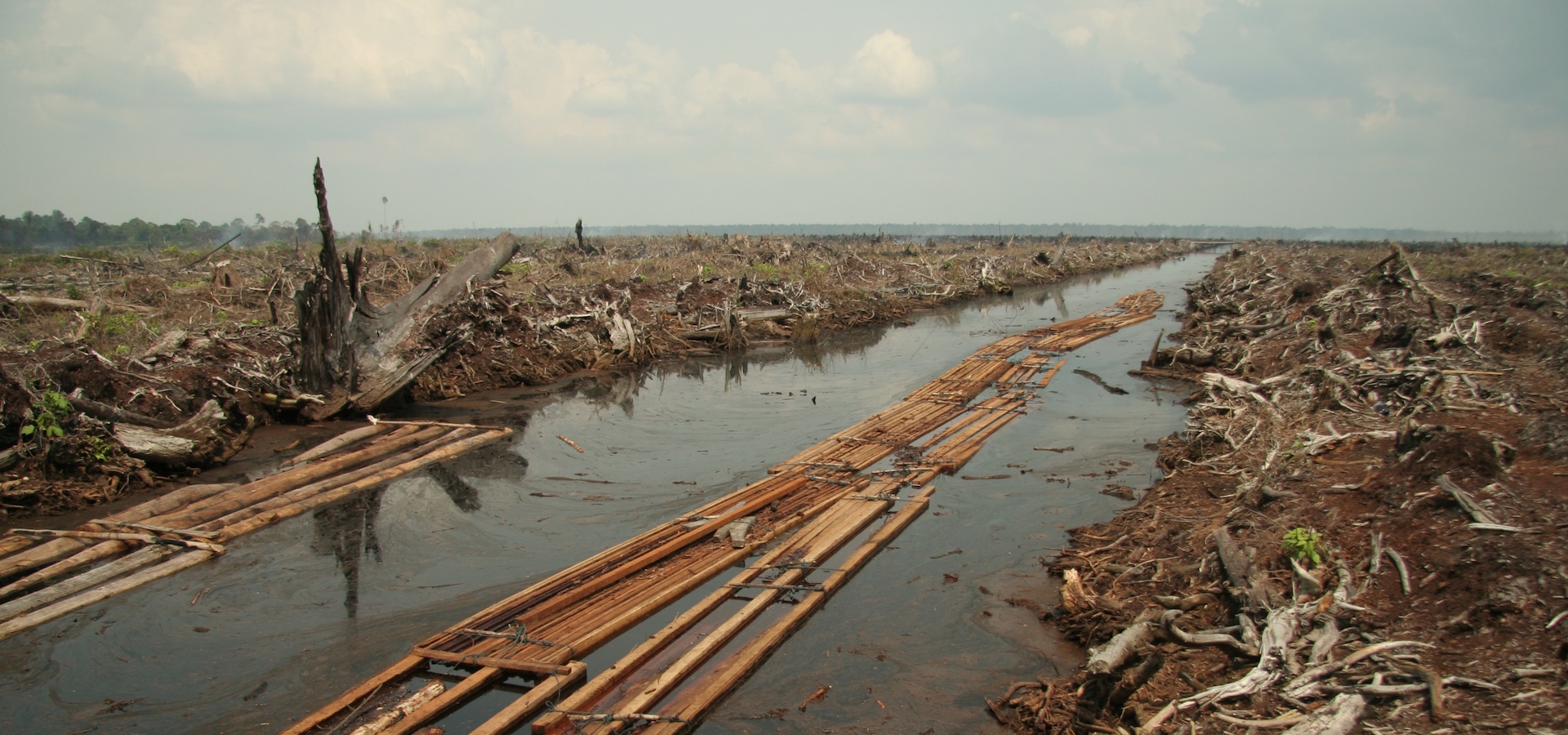With the growing emissions in the transport sector and limited technological alternatives, EU policy-makers are increasingly looking at biofuels as a major solution to decarbonise its mobility sector and curb emissions, in particular in the aviation industry. Radostina Primova explains.

Half of the EU’s palm oil is imported to make biofuels – with devastating environmental consequences (Photo by Aidenvironment, edited, CC BY-SA 2.0)
As the emissions from the aviation are expected to grow by 70% by 2020 compared to the 2005 levels and by 300-700% by 2050 according to the forecast of the International Civil Aviation organization (ICAO), biofuels are expected to play a key role in decarbonisation scenarios of the transport sector. EU institutions are looking at biofuels as a substitute for the huge oil dependency in this sector, which strongly relies on liquid fuels. The EU 2020 climate and energy package requires EU Member States to include at least 10% renewable energy sources in the transport fuels consumed by 2010, which has led to a significant increase in the demand in land-based biofuels. The net imports of biodiesel and bioethanol in 2012 represented respectively 22, 6% and 29, 2% of the EU consumption in 2012 according to Eurostat data.
A recent report commissioned by the Heinrich Böll Foundation European Union reveals that certain climate-motivated EU policy measures, including EU biofuel policy, could have implicit adverse impacts not only on the environment but also on the life of local communities, land rights and food security, if sustainability and human rights safeguards are not put in place. According to the report, the EU has impacted two global chains that are highly susceptible to human rights violations against local communities. Firstly, the international demand for biofuels has driven land grabs for growing large plantations for biofuel crops. Secondly, the transformation of productive land to biofuel crops has displaced agricultural production and endangered food security in some vulnerable regions.
The sustainability criteria adopted in the 2009 Renewable Energy Directive focus only on reducing the carbon intensity of biofuels and preventing biodiversity degradation but fail to tackle land rights issues and other rights-related implications of biofuel production and import. In its proposal for a revised Renewable Energy Directive launched in November 2016, the Commission does not address the possible extraterritorial impacts of biofuel production and import related to human rights and gender.
Furthermore, the scope of the safeguards for biomass does not extend beyond waste and residues to include the climate risk of other types of biomass. Setting adequate, comprehensive and human-rights based sustainability safeguards for the use of bioenergy is essential. Recent evidence shows that EU bioenergy policy has caused harm to communities in developing countries and is not in line with the SDGs. Cases of food displacement and land conflicts driven by EU bioenergy policies have been already witnessed in countries of the Global South, in particular in countries such as Indonesia, Malaysia, Peru and Tanzania.
Another major loophole in the EU energy and transport legislation is the lack of binding norms and certification schemes to prevent the import of palm oil for fulfilling Member States´ national renewable energy targets in the transport sector. It is alarming that 46 % of total palm oil imported by the EU is used for the production of biofuels, which requires the use of about one million hectares of tropical soils.
As the second biggest consumer of palm oil in the world, the EU carries a global responsibility in addressing these ecological and social impacts. Therefore, it should include horizontal safeguards to prevent the adverse effects of its external actions in third countries. An EU Commission report in 2013 already draws the attention to the wide range of adverse impacts of human rights that the imports of biofuels could potentially trigger. These include land rights, access to food, clean water, as well as to prior and informed consent for indigenous people. In addition, land use changes caused by biofuel production could affect women’s rights.
In order to prevent the negative impacts of these developments, the European Parliament adopted in March an important report addressing the issue of palm-oil related deforestation and its human and environmental consequences. As a result, MEPs voted to ban the use of palm oil in biofuels by 2020. In addition, the European Parliament also urged the Commission and Member States to develop multilateral certification schemes with environmental and social safeguards, prevent imports from unsustainably produced palm oil and tighten controls.
Apart from new certification schemes and more comprehensive sustainability criteria, the EU could also reinforce stricter norms and standards in its external trade policy instruments such as anti-deforestation articles in EU trade deals and customs duty reforms. The Heinrich Böll Foundation’s interim report recommends that sustainability criteria for biofuels should explicitly address land rights and gender issues. The use of biomass combustion to meet EU´s renewable energy targets for 2020 should also be restricted substantially or reframed.
In the rush to find innovative solutions to decarbonize its transport sector and reduce its oil dependency, the EU should not remain blind to the adverse and unintended consequences that its biofuel policies might lead to, and ensure their coherence with its human rights commitments and sustainable development goals.
Dr Radostina Primova is the Director of the Climate and Sustainable Development Programme at the Heinrich Böll Foundation office in Brussels. Prior to this, she worked as an EU Affairs Consultant at Hinicio. She also contributed extensively to the evaluation of Intelligent Energy Europe projects supporting sustainable energy communities.